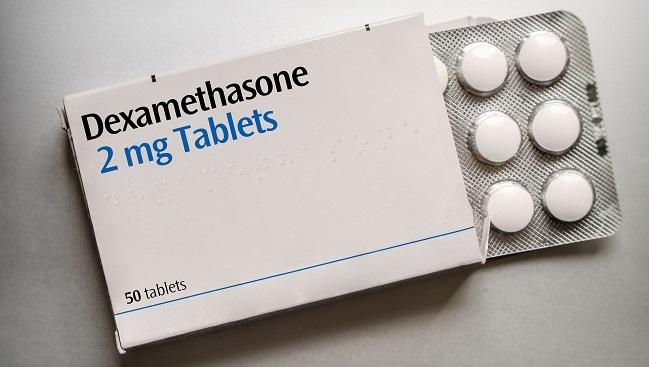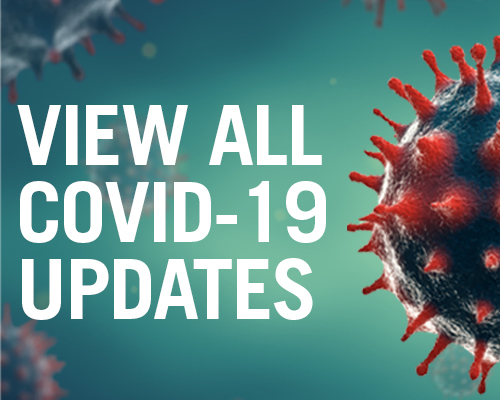Published Data Detail How and When Dexamethasone Might Help in COVID-19
RECOVERY investigators stress the steroid should be used when the disease is dominated by “immunopathological elements.”

More details on the dexamethasone arm of the RECOVERY trial have now been published in the New England Journal of Medicine, characterized as a “preliminary report” by the authors. As previously reported by TCTMD, based on a press release issued by the investigators, use of the corticosteroid dexamethasone reduced the risk of all-cause mortality in COVID-19 patients on mechanical ventilation and in those requiring oxygen.
Importantly, no benefit was seen in patients not receiving any respiratory support at the time of randomization.
Run by researchers from the University of Oxford, the RECOVERY trial is testing a range of treatments for patients with COVID-19. The group announced in mid-June that they had closed enrollment to the dexamethasone arm after an early review of the data showed the steroid had a meaningful effect on clinical outcomes.
In total, 2,104 patients were randomized to oral or intravenous dexamethasone 6 mg once daily for 10 days and 4,321 to usual care. As investigators clarified today in NEJM, the overall 28-day death rate in patients treated with dexamethasone was 22.9% compared with 25.7% in the usual-care group (age-adjusted RR 0.83; 95% CI 0.75-0.93). That benefit, however, was restricted to patients receiving mechanical ventilation (29.3% vs 41.4%; RR 0.64; 95% CI, 0.51-0.81) and to those receiving oxygen without ventilation (23.3% vs 26.2%; RR 0.82; 95% CI, 0.72-0.94). Treatment with dexamethasone did not lower the risk of death in COVID-19 patients who did not require respiratory support. Moreover, “the results were consistent with possible harm in this subgroup,” the investigators say.
Of note, randomization in the trial was done a median of 8-9 days after symptom onset and within 2 days of hospitalization.

“It is likely that the beneficial effect of glucocorticoids in severe viral respiratory infections is dependent on a selection of the right dose, at the right time, in the right patient,” according to the researchers. “High doses may be more harmful than helpful, as may such treatment given at a time when control of viral replication is paramount and inflammation is minimal. . . . The greater mortality benefit of dexamethasone in patients with COVID-19 who are receiving respiratory support and among those recruited after the first week of their illness suggests that at that stage the disease may be dominated by immunopathological elements, with active viral replication playing a secondary role.”
In the press release announcing the results back in June, Peter Horby, MD, PhD, who is leading RECOVERY along with Martin Landray, MBChB, PhD, called the mortality benefit an “extremely welcome result,” adding that dexamethasone is “inexpensive, on the shelf, and can be used immediately to save lives worldwide.”
Of note, randomization of adult patients to receive dexamethasone, lopinavir/ritonavir, or hydroxychloroquine in the RECOVERY trial has now been stopped, representing one win and two loses for candidate agents so far. The trial continues to randomize patients in its analyses of azithromycin, tocilizumab, or convalescent plasma. The trial is also continuing to study low-dose dexamethasone in children.
Shelley Wood was the Editor-in-Chief of TCTMD and the Editorial Director at the Cardiovascular Research Foundation (CRF) from October 2015…
Read Full BioSources
The RECOVERY Collaborative Group. Dexamethasone in hospitalized patients with COVID-19—preliminary report. N Engl J Med. 2020;Epub ahead of print.
Disclosures
- Disclosures for RECOVERY investigators are available online.


Comments